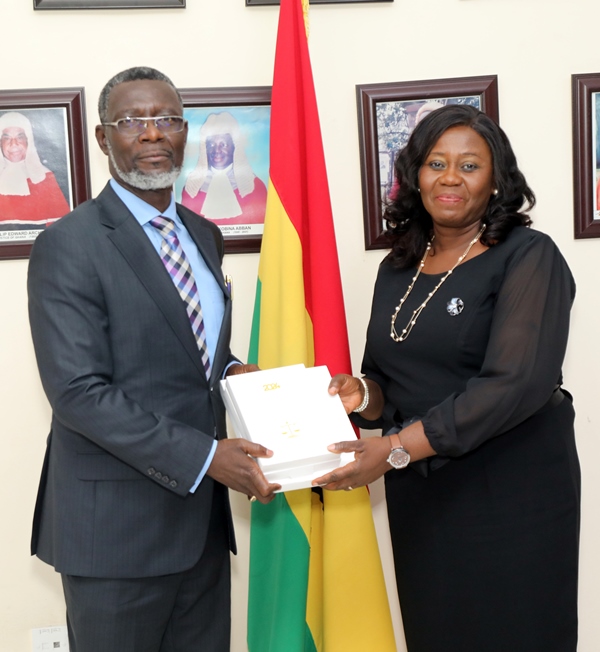
The Chief Justice, Mrs Justice Georgina Theodora Wood, has stated that custodial sentences will not be effective if the proceeds of crime are not seized.
According to her, the traditional objective of prosecution has been sentencing convicts to prison as part of efforts to reform the criminal and to serve as a deterrent and retribution.
However, the impact of custodial sentences could not have significant change on crime as long as criminals know that the proceeds of crime are safe from being taken away from them.
Justice Wood said it was, therefore, necessary that the proceeds of crime were made inaccessible through collaboration between the justice system and the financial system to ensure that the profits of crime were removed from the perpetrators.
She made the observation in a speech read on her behalf by Mrs Justice Gertrude Torkonu, a Justice of the Commercial Court, at the opening of a week’s capacity building seminar on economic and financial crimes for judges, investigators and prosecutors of Ghana in Accra yesterday.
It was organised by the Inter-Governmental Action Group against Money Laundering in West Africa (GIABA), the Judicial Training Institute of Ghana and the Financial Intelligence Centre (FIC).
Threat to national security
Justice Wood, therefore, called for concerted efforts from stakeholders to eradicate the disturbing phenomenon of money laundering.
She said if the problem was not halted, it would threaten the cohesion, security and stability of the financial system, the economy, value systems of the body politic and good governance of the country.
“Wealth creation and wealth generation are in themselves a positive development. However, if directed at financial cross-border and economic crimes, it becomes a plague that requires serious consideration and a well-co-ordinated effort to eradicate completely from society,†the Chief Justice said.
Justice Wood said the different entities constituting the judicial system of the country were faced with systematic and peculiar challenges such as lack of channels for knowledge flow, and expressed gratitude to the organisers of the programme for building the capacity of stakeholders in the fight against money laundering.
UN drug statistics
She gave some startling statistics about drug trafficking from which moneys were laundered.
According to her, the United Nations Office on Drugs and Crime estimated that around 40 tonnes of cocaine, with an European retail value of $3.2 billion, consumed in Europe in 2006, was trafficked through West Africa.
Justice Wood said the UN had also found evidence of drug production and abuse which were also on the surge, as well as trafficking in persona, arms, minerals and counterfeit medicine in the sub-region.
She urged colleagues in the fight against crime to evolve strategies that would meet the effective and efficient discharge of the task, adding that “this is necessary to remove the growing perception that, but for wilful blindness, the Ghanaian criminal justice system is capable of dealing effectively with transnational organised crimeâ€.
Credit: Graphic.com.gh























Facebook
Twitter
Pinterest
Instagram
Google+
YouTube
LinkedIn
RSS